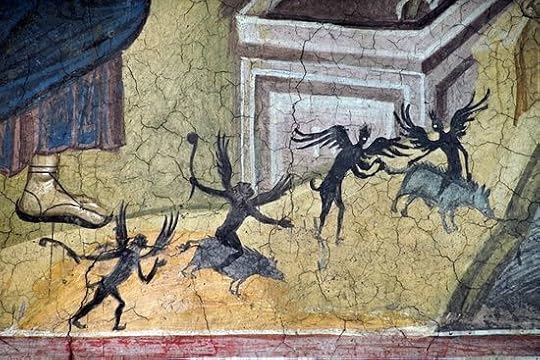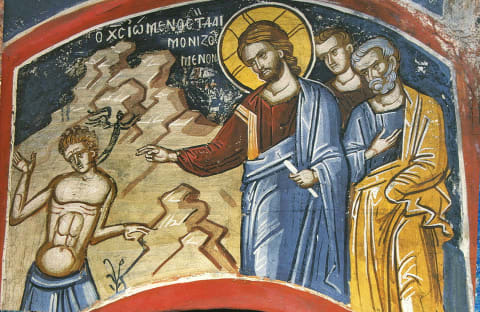The Devil is an Essential Character in the Gospel’s Dramatis Personnae

If you appreciate the work, consider becoming a paid subscriber.
This Sunday I will continue a long sermon series through the Miracles of Jesus by preaching on the story of the Gerasene Demoniac in the Gospel of Mark. In all three synoptics, it is the most lavishly detailed story outside the Passion narrative. The passage draws attention to the fact that many of Christ’s miracles are exorcisms. As much as he is a Teacher, Prophet, or Redeemer, Jesus is an Exorcist; or rather, exorcism is a critical and necessary component to his work of redemption.
As Peter proclaims to Gentile hearers in the Book of Acts:
“God anointed Jesus of Nazareth with the Holy Spirit and with power; he went about doing good and healing all that were oppressed by the devil, for God was with him.”
The story of the Gerasene Demoniac is a reminder that the Devil is an essential character in the Gospel’s dramatis personnae; therefore, our understanding of Christ’s salvific work is unintelligible if it shirks from accounting for the Enemy. Though we allegedly live in a secular age, the scriptures demand we deal with the One whose names are Legion.
In a 1989 essay entitled “Evil as Person,” Robert Jenson repents of having avoided the subject of Satan in his theological writing. Jens admits that while he knew there was evil in the world and though he knew the scriptures speak of demons and their Devil, as a good modern scholar he simply treated this as background noise to the project of Christian proclamation.
This was a mistake, he confesses.
That it was a clear error is obvious from two central Christian claims:
There is God.
There is evil.
The goodness of the former rules out a causal relationship with the latter, thereby requiring a third claim:
There is Evil as Person.
Not just as a principle, a system, or a force, but a someone.
From this straightforward if perplexing assertion, Jenson proceeds to the doctrine of creation. To confess the biblical God is first to say that reality itself—especially as history—has a moral intention. The world is not indifferent. It is valued and loved before we value or love anything. But this is not yet the full confession of God. God is not only moral will but personal reality. The difference is this: you can speak to a person, and a person can respond. Prayer is possible. God listens and engages, not because He lacks knowledge or power, but because His very being includes relationship. He is willing to be addressed and to respond.
If the ground of reality is personal love, then the world’s moral disorder is not merely chaos, Jenson argues. Somewhere in reality there is a will that hates. Not an abstraction, but a subjectivity that comprehensively despises creation—just as antecedent to our own hatreds as God’s love is to our loves.
The world’s moral disorder is not chaos; somewhere in reality there is a will that hates.

Jason Micheli's Blog
- Jason Micheli's profile
- 13 followers



